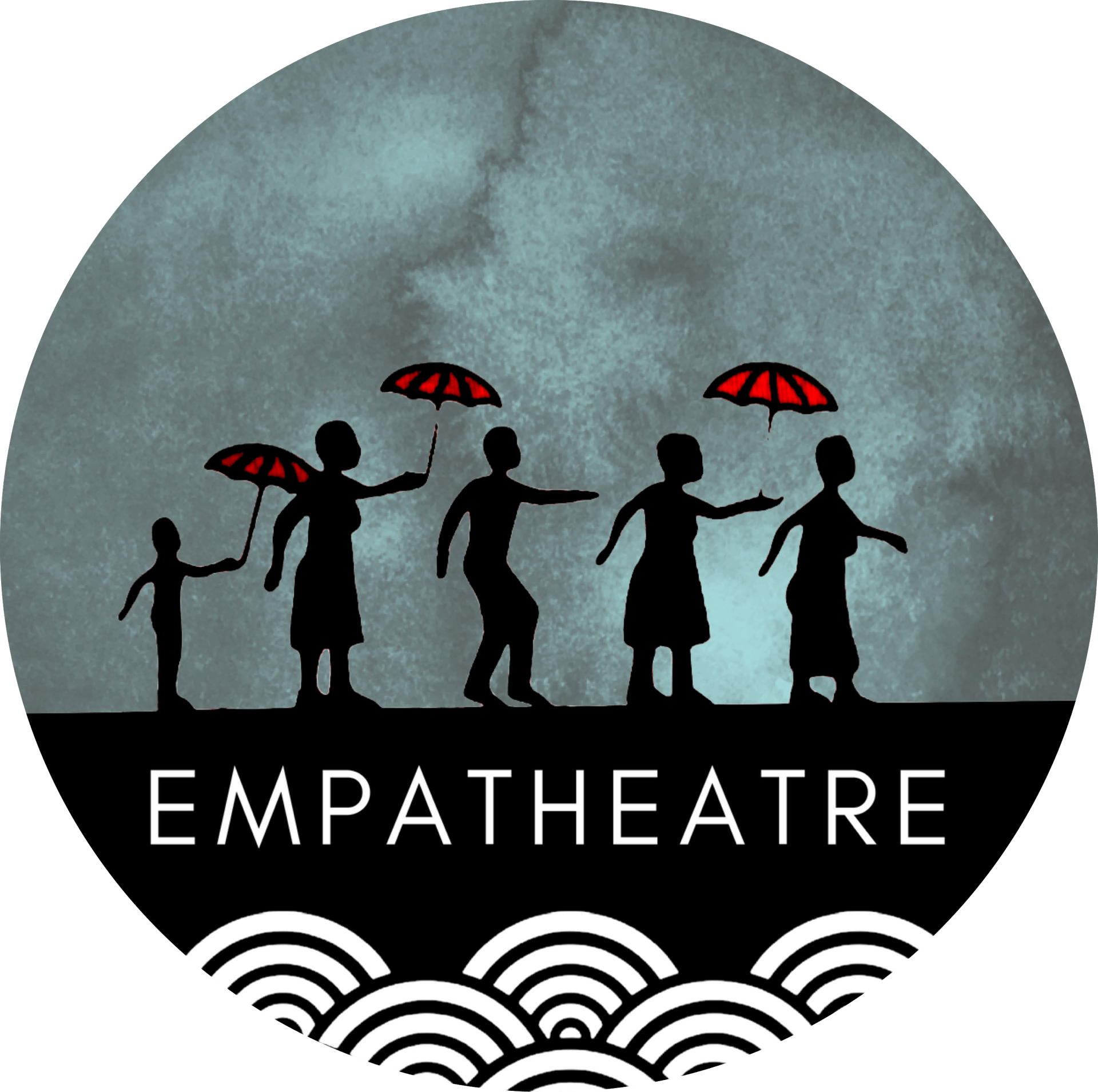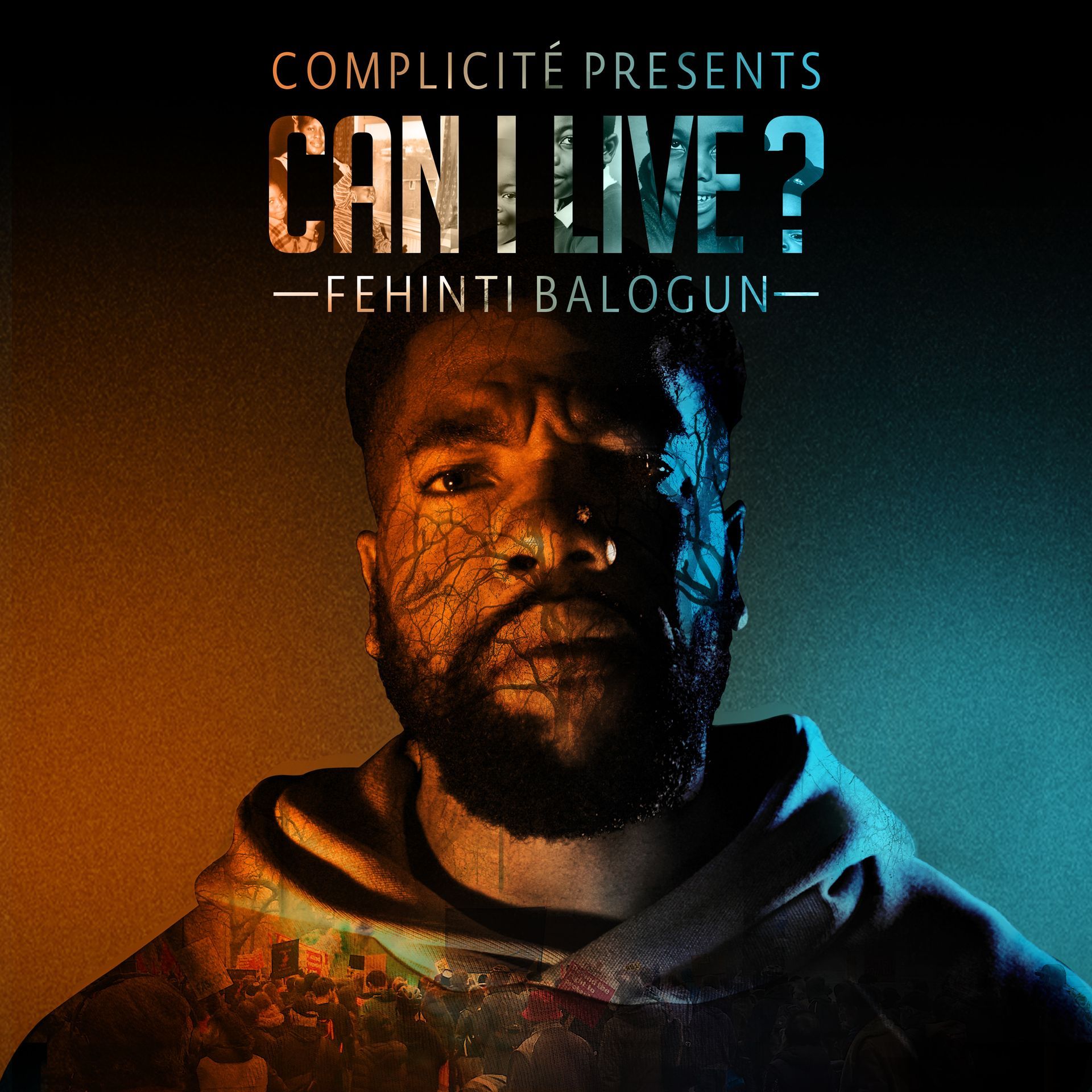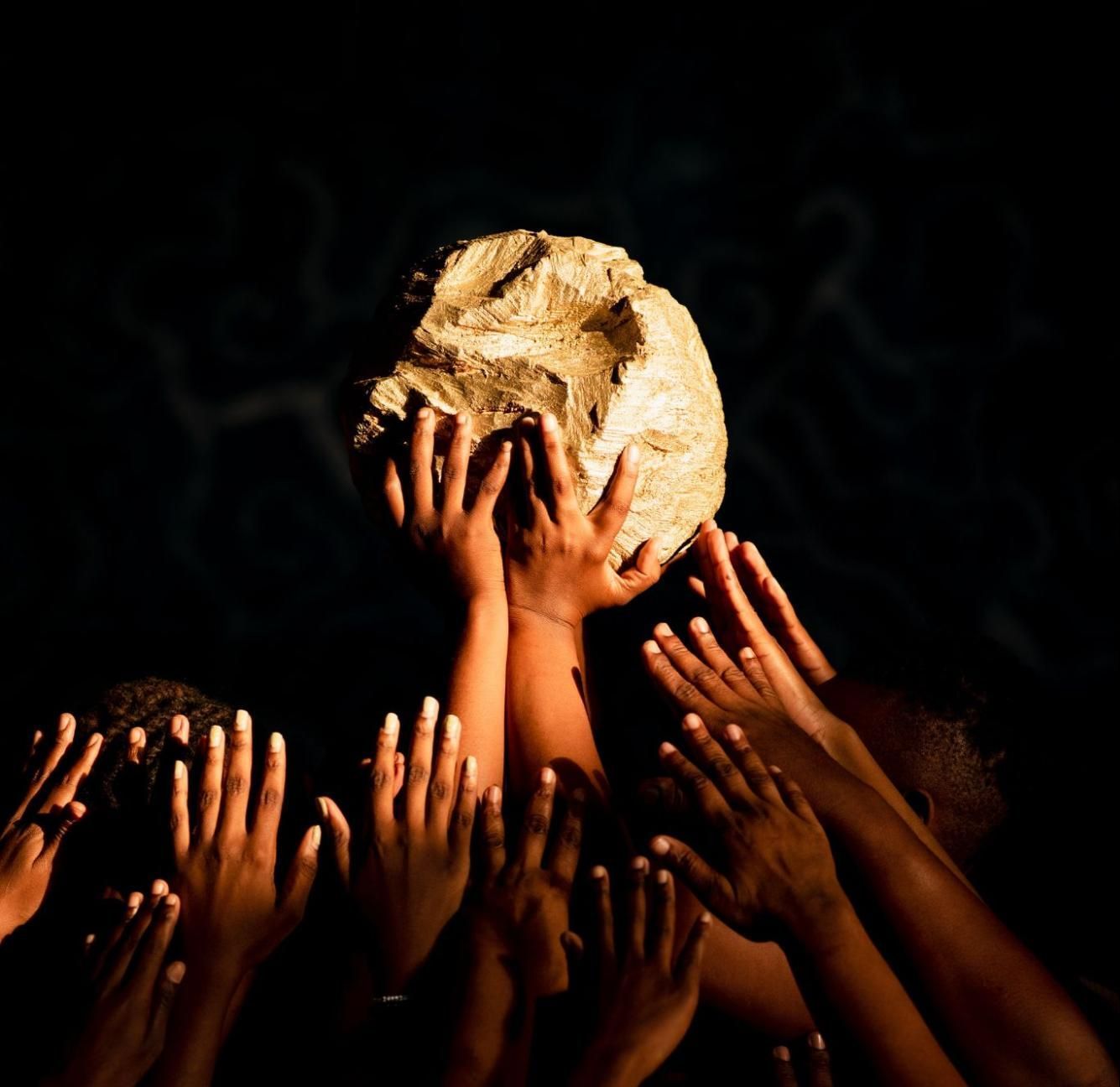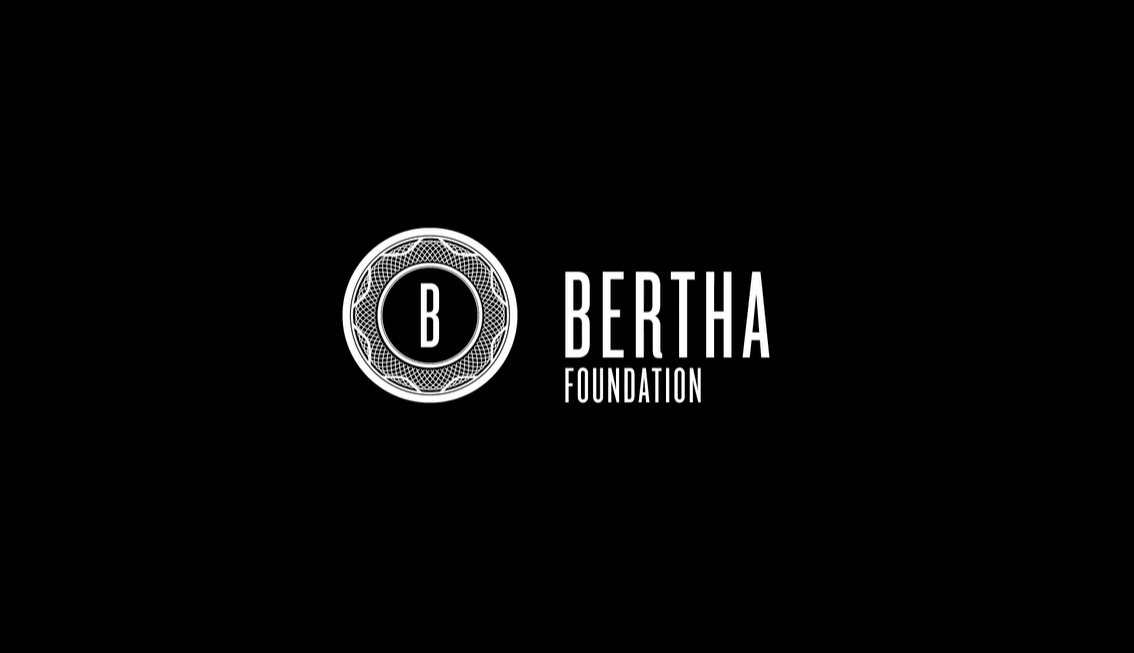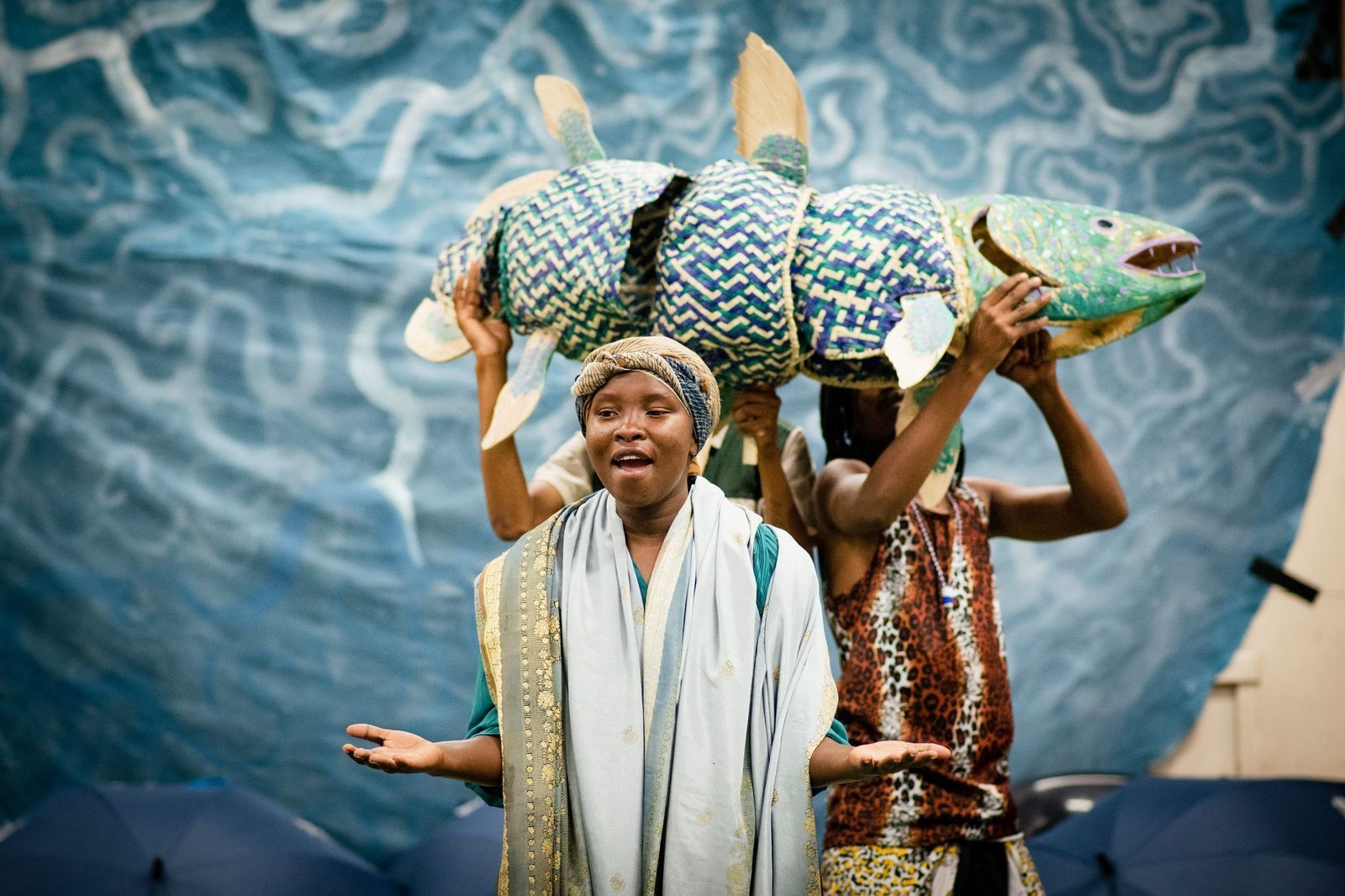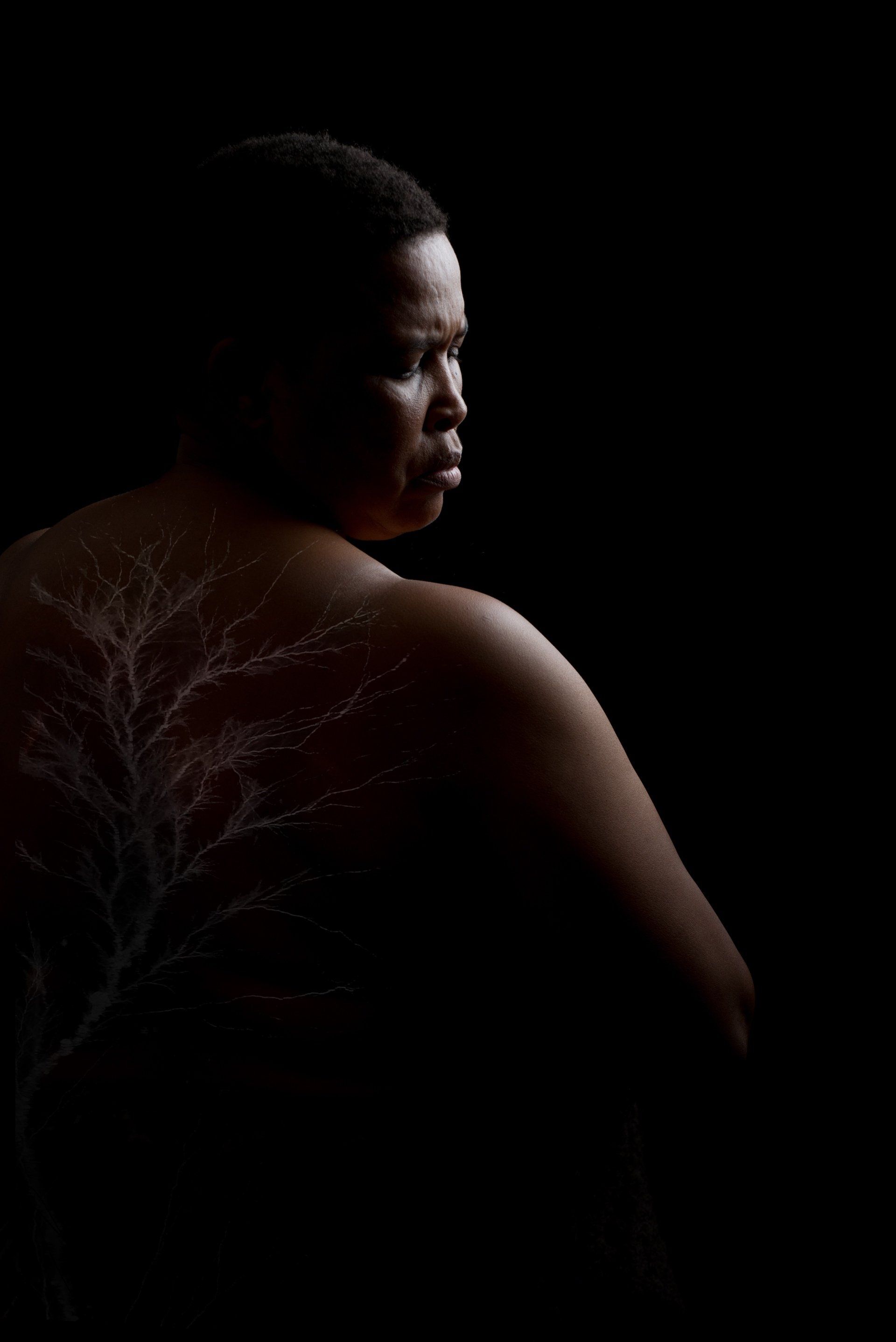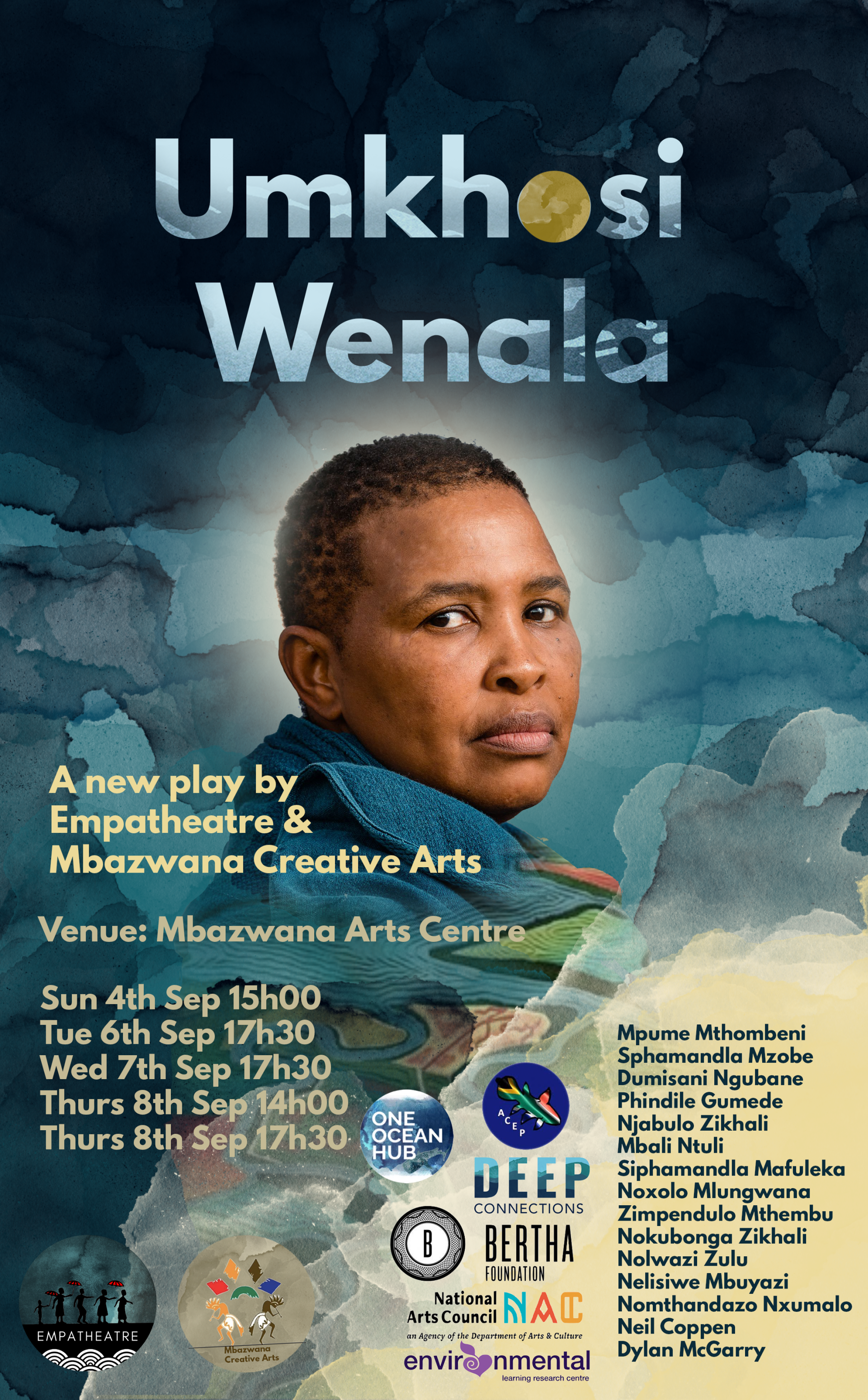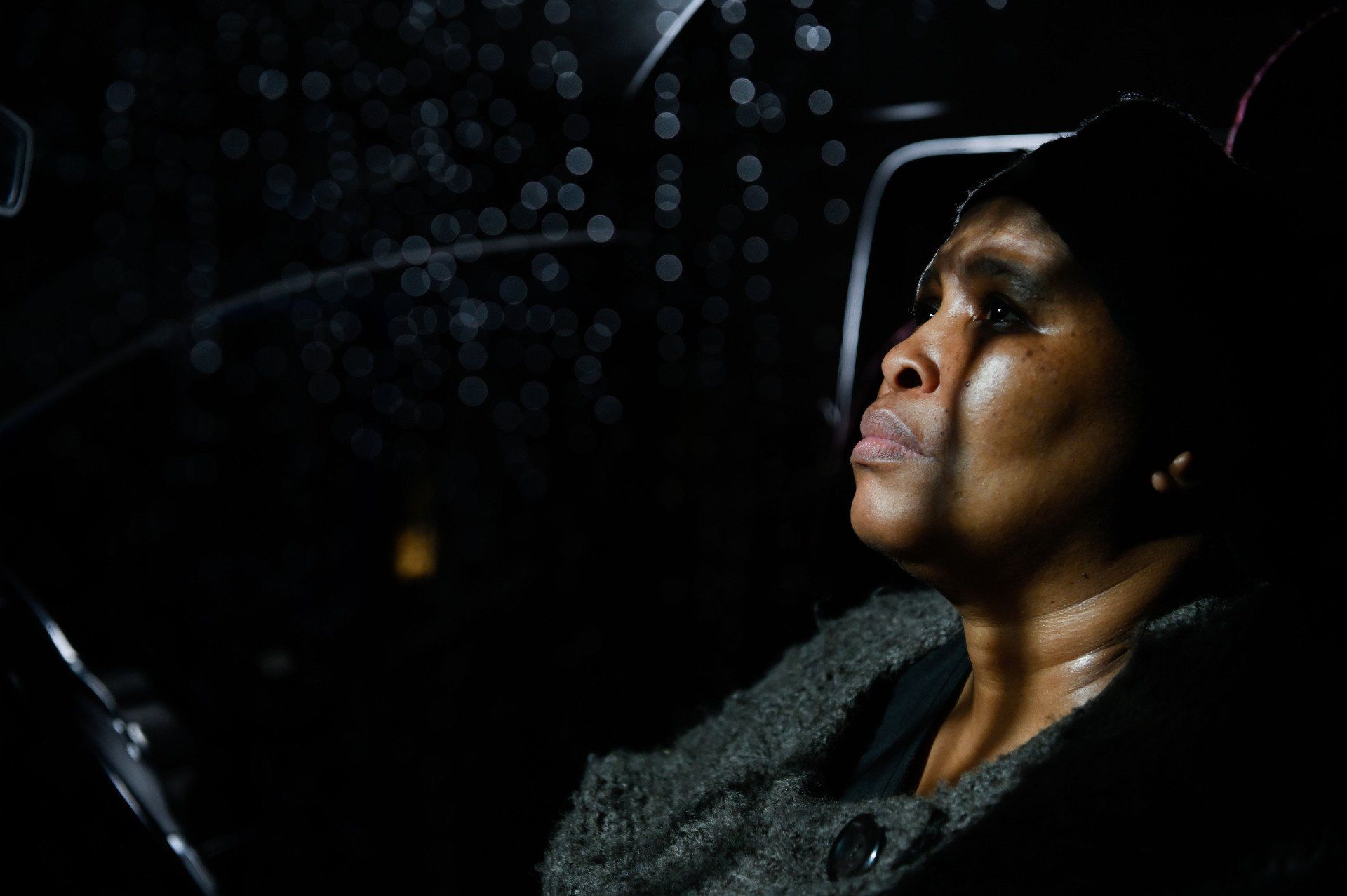News
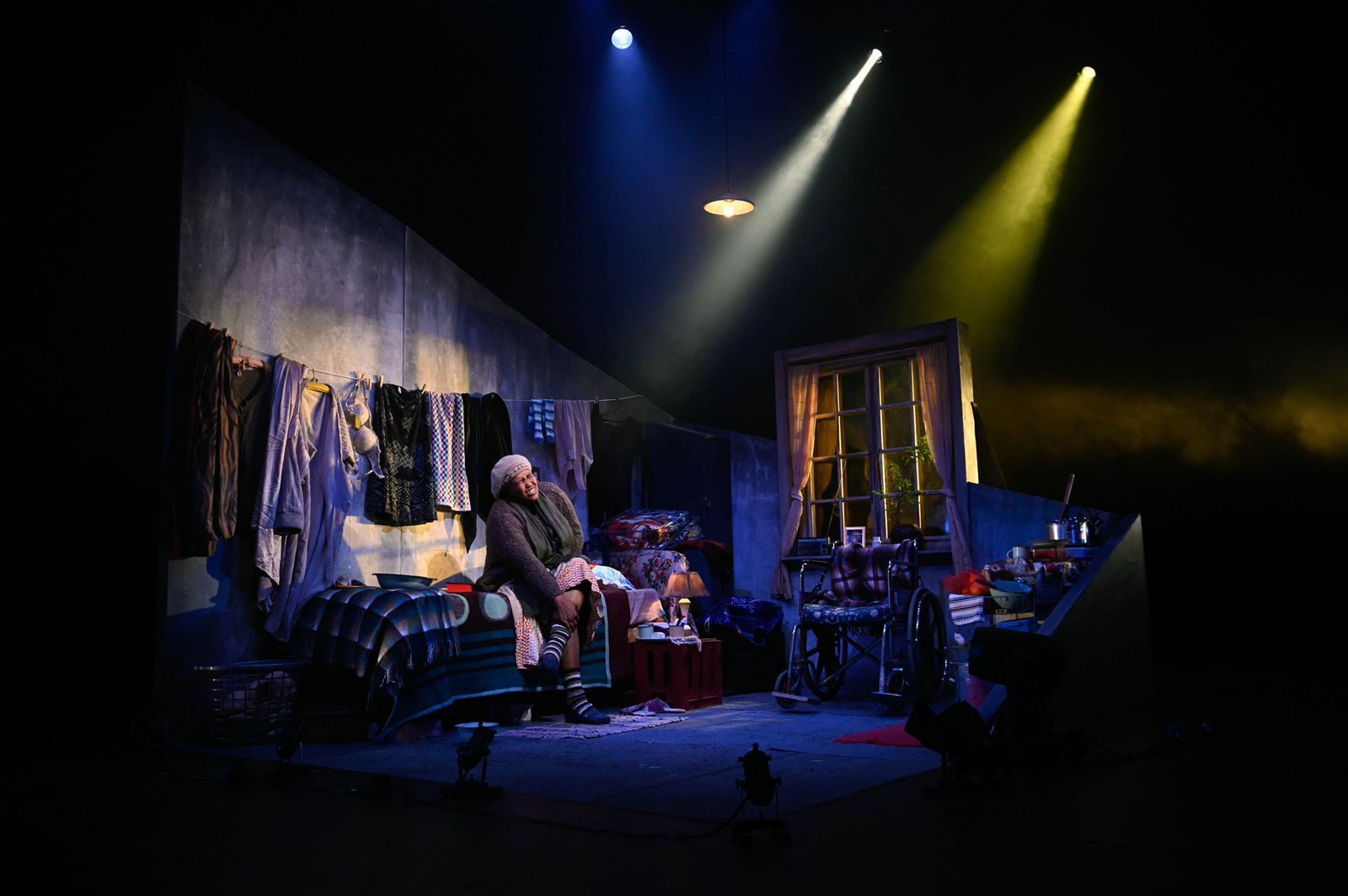
How do we make sense of the violent histories that mark our past? This play, Isidlamlilo, forces us to engage seriously with this question. Depending on your own relationship with our violent history, this play awakens a profound and at times unsettling realization that history is a living breathing force in all our lives. Isidlamlilo is set in the dying days of Apartheid, and in the present democratic South Africa.
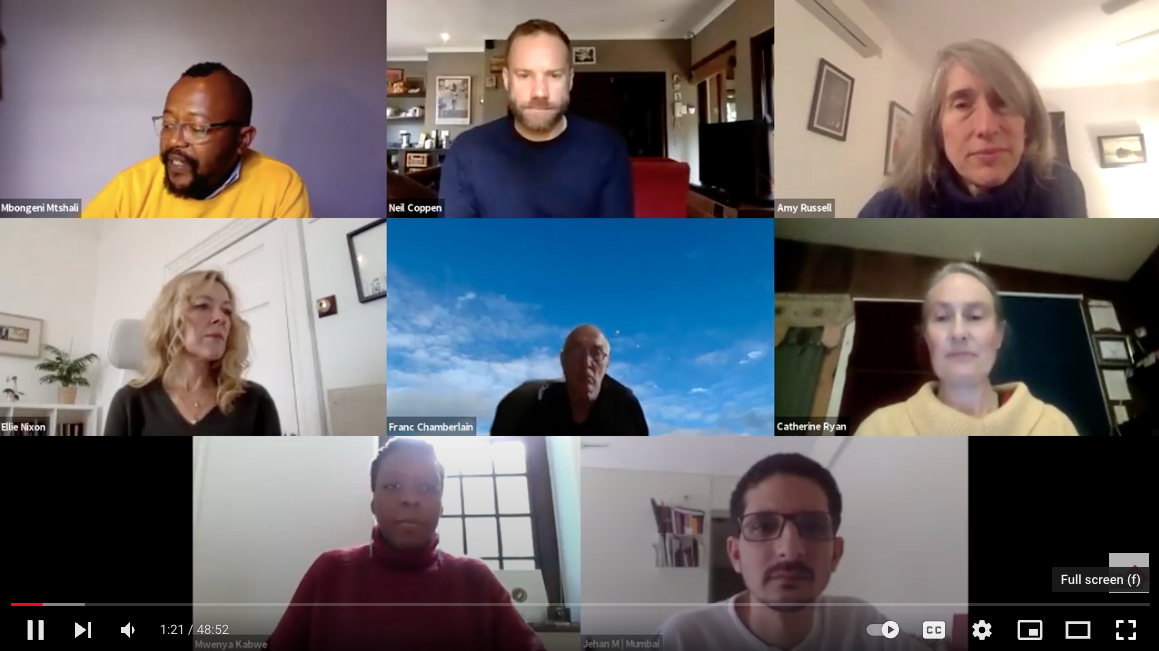
Amphitheatres of empathy In the earlier part of his career, Coppen’s work tended to travel the mainstream festival circuits around South Africa but he quickly grew frustrated with this way of working, especially in a country like South Africa, where few are able to access theatre or festivals of this nature. His work, he says, has always been research orientated and often takes over five years of investigation before a script is even conceived. “With my earlier work, the productions would tour South African theatre festivals circuit and perhaps get offered a longer theatre engagement at one or two venues around the country. I eventually grew frustrated over the longevity and reach of these productions, the demographics of festival going audiences, who had access to these stories and why. It felt like there was a ceiling one reached very quickly when working like this. I soon began to explore ways in which to foreground the stories and storytellers who I had collaborated with over the years, artists of immense gifts yet who were too often marginalized from the platforms my own privileges had enabled me to access throughout my career. The hope was that we could collectively forge some sort of new way of listening to, accessing and sharing stories across the country, a way that didn’t rely on traditional theatre models, practices, circuits and institutions.” There came a point where Coppen felt that a seismic shift was needed in how theatre – centering on advocacy of social justice issues – was researched, devised and performed. He wanted to begin testing how these stories could have a wider reach and impact and how theatre could be utilized as a democratic conversational tool in the process. In the meantime, he was also collaborating with a variety of dynamic young community-led theatre projects in KwaZulu-Natal (KZN) in South Africa, where younger theatre-makers demonstrated a passion and urgency to address social concerns through storytelling and theatrical processes. “Working closely with these younger artists and activists, I was able to see how they were grappling with social concerns in their work and I began to explore both the potency and problematics of tackling social- justice issues through the theatrical medium. Some of the early questions I began asking over the years was: Is it not a lost opportunity to not attempt to impart a fresh perspective series of perspectives around a social issue as opposed to simply telling it like it is and enforcing what most people already know? How can theatre and advocacy work in seamless tandem yet without reducing the narrative to one dimensional polemic or soapboxing. Often our knowledge around an ‘issue’ can be relatively superficial and are we not then at risk of perpetuating (even sensationalizing) the same series of stereotypes and myths we have set out to critique?” asks Coppen. “Too often in Applied theatre processes and characters end up being reduced to mouth -pieces for conveying critical information over fully realized and embodied beings. Most importantly what would it mean if the community-led theatre makers and practitioners were offered the space and resources to prioritize a research process before the theatrical scripting or devising process even begins?” With these strands playing on his imagination, Coppen teamed up with Mpume Mthombeni, a performer and theatre-maker who uses storytelling as a form of traditional healing, and Dr. Dylan McGary, who has a PhD in Environmental Education with a focus on social sculpture and empathy, to co-found Empatheatre. The term Empatheatre comes from their collaborative work in sculpting new spaces that act as “amphitheatres of empathy”. The Empatheatre methodology Coppen describes Empatheatre as a theatre-making methodology that is rooted in research-based practices. One of their first projects was a collaborative IsiZulu theatre piece called Mhlaba noLahle (Soil & Ash). Coppen was already used to investing in research for all his works. “My processes always take a very long time. If ever I am exploring worlds outside of my own – particularly in a complex, fractured and multifaceted society such as the one I live in – there is a rigour and far more nuanced and deeper collaborative understanding that is needed beyond what I am to offer as an individual.” he says and adds that he has never believed in the master playwright-director hierarchies and that the creative process is always an intensively participative and collaborative one for him. For Mhlaba noLahle (Soil & Ash), they were approached by a conservation organisation in KZN called Ezemvelo. It was located around a game reserve in Northern Zulu land. The initial brief was to create a piece of theatre around the Fuleni community who lived on the border of a popular wildlife game reserve. The community was faced with a major critical decision of whether to sign away their ancestral land or not, to Ibutho, a mining company which proposed to build a coal mine there. Ibutho was allegedly bribing and coercing traditional leaders within the Fuleni community to sign away their land, and successfully fracturing community solidarity and trust. There was a lot of confusion, tension and violence beginning to take place within the community. At the same time, Ezemvelo, who approached Coppen and his team in the first place, were putting a lot of pressure on the community to retain their land. The Fuleni community was very divided over what to do. The mine seemed like an appetizing possibility for employment. “We told Ezemvelo that while we were interested in the project, we were not a theatre-for-development company,” explains Coppen. “We don’t ever move into a space and push a message or single agenda on people. The research and deep listening process by our team, needs to happen from the ground up and not the top down. The genuine needs, concerns of the people in the Fuleni community were the ones that seemed to be the most absent from the conversation and so we attempted to foreground the conversations that were not being had or shared or attended to. These are the voices we work to prioritize these in all our story listening/telling/sharing process.” The research phase of Mhlaba noLahle (Soil & Ash) consisted of testimonials, oral histories, interviews, exploration of legal documents and images from various communities who had been displaced or affected by land-based mining. Coppen and his team consisting of isiZulu speaking actor- ethnographers to the nearby Somkhele community, who had been coerced into relinquishing their land by similar promises from a mining company. “The actors visited these places and gathered these stories, and we collectively created a piece that tried to articulate all these different complexities,” says Coppen. “ So much is lost when people’s concerns and frustrations are reduced to a lifeless power point presentation or pamphlet but theatre can make them live in urgent, emotive and hugely innovative ways…ways that connect and unite us all in new forms of dialogue and understanding.” In addition to taking a complex, multi-voiced look into existing social concerns or problems through their performances, Empatheatre also facilitates post-play dialogues between different stakeholders within the community. Their performances are shown to audiences made up of people with different levels of power, privilege, and agency in relation to the matter being explored on stage. These post-play conversations allow people holding conflicting viewpoints on the central concern of the play, express themselves in a safe and attentive space. Let’s just listen – Ulwembu As a method, Empatheatre allows people the opportunity to intervene across a range of spaces, politics, social situations and scenarios. But how does Coppen and his Empatheatre team arrive at which story to tell? He explains that one needs to listen to what are people and participants dominant concerns, anxieties, frustrations are, what is on their minds, where the political acupuncture points are that need the most urgent attention in their respective communities/societies. What are the conversations not being had? To demonstrate this, Coppen shares how he and his team began working on Ulwembu in 2014, a story revolving around a growing concern on the rapid increase of smoking heroin in communities around Durban in KZN. The drug, locally known as Whoonga, is a concoction of B-grade heroin and other toxic chemical components. During one of his workshops with young theatre-makers and story tellers in KZN, he facilitated an exercise where each person wrote down five most pressing concerns that they faced in their community and felt they need to be discussed or unpacked further. After each person shares their list of top-five concerns, the group then collectively chooses five that they feel most impact/oppress them. “In all the workshops I was doing, the number one problem at that time that was surfacing there was Whoonga. How are we going to address this participants asked? How can I help my sibling or parent or relative who has fallen into the spiral of addiction? How could theatre-making and storytelling around these issues actually attempt to address the problem rather than merely articulate how tragic and hopeless it all seemed at the time? That became a much longer and vaster research project than we initially imagined,” shares Coppen. To take the project further, The Empatheatre founders approached a community-led theatre group The Big Brotherhood and asked, “Does Whoonga interest you and affect you? Is that something you would like to talk about through theatre? This group were impassioned about tackling the subject as it was already having a devastating impact on friends, neighbors and family members.” The team decided to spend a year and a half doing research trying to understand the Whoonga problem, not just from the perspective of a neighbor but widening the field of inquiry to include the viewpoints of police, policy makers, social-workers, traditional healers, faith based leaders and activists. “We decided to spend one year just listening to the stories, attending to those stories first, before even trying to devise some sort of theatrical output or shaping an advocacy strategy through the production,” he says. The team would meet every few weeks to sift through all their research, do improvisation exercises to realize where the gaps in knowledge lay. “As this was going on, we were forming partnerships with a homeless shelter in the center of Durban and with academics who are researching the problem. We were trying to understand it from all of the different angles, and then try and articulate that complexity through the creation of an isiZulu theatrical production,” explains Coppen. This intensive research-based is almost journalistic in nature, investigating every perceivable intersection and understanding how different stakeholders are impacted. To use people’s stories, Coppen and his team ask them for their consent to portray it on stage. Everyone gets an opportunity to see how they’ve been represented and comment back and talk back to it and allow for changes happen. The tricky bit in all this, Coppen believes, is to find a way to change oppressive behaviour. “My concern with the idea of theatre of the oppressed is that what about the oppressor?” he asks. “If we’re not using theatre to challenge and confront and expose oppressive behaviors then how is transformation or change ever truly going to be possible through storytelling? Unless we try, are we not just preaching to the so-called converted, simply mirroring back people’s realities as they are to them? Because audiences will watch it and say, ‘Yes, I recognize my story. And I perhaps feel honored that it’s been acknowledged and presented like this, but tell me something I don’t know right now’.” The biggest challenge for Coppen and the Empatheatre team is to move these stories into spaces where people hold power and agency to truly affect change at a systemic level. In that sense, Ulwembu started claiming high levels of access over its five year run. It was invited for a performance at the South African parliament, in front of heads of drug policymakers within the government. It was invited to drug conferences across the country and world, where the play was used as a fascinating and interesting starting point for conversation and deeper discussions around policy and harm reduction campaigns. Establishing an ethics of care Detailing his process of deep listening and gathering stories with empathy, Coppen says the essential starting point is to acknowledge the existing levels of power, privilege and agency that are present within the team and using these transparently to the benefit and enrichment of the project as a whole. His biggest lesson in working with Empatheatre projects has been to gather a group of actors who are also intuitive ethnographers and researchers and be responsible for shaping authentic characters from of their research. “The actors and team members are often involved from the research right through to the developing of their characters, to the strategizing of the story, play plots and what the theatre production ultimately becomes,” he shares. Coppen also recognises the danger of acting like saviour when one goes out to speak to the affected communities. With Ulwembu, his actors interviewed their family members, neighbours who were drug dealers, friends who were users and runners, as a starting point of research. His job in all this, he says, is to fundraise for resources, forge and facilitate spaces and processes for all the emerging strands of the narrative to coalesce into a theatre production and then manage the logistics alongside his fellow Empatheatre leaders. But he finds that actors creating the characters by virtue of listening to people they will embody and play in the production, has a profound impact on the authenticity of the characters they go on to portray on stage. It allows them to avoid stereotypes or melodrama by simply imagining or speculating on another’s life story. “Rather, this is a deep form of research where the actors themselves are acquiring that story and honoring that informant with the character they create and put on the stage. It creates a new respect with how you portray that story and how you want to honour the person who’s been prepared to be vulnerable and open themselves up to telling you their story,” shares Coppen. There are a lot of ethical complexities that come into play in such a process. To establish an ethics of care in the research process, Coppen’s colleague Taryn Pereira, an activist researcher and facilitator wrote down a code of ethics that all collaborators on an Empatheatre project work with: Do no harm, but don’t be afraid of a little generative tension. Waste no one’s time. Be transparent, not invisible. Contribute what you can (time, resources, networks, skills, access, care). Listen, observe, and then help to articulate what is happening. Make space for others to articulate, describe, explain, strategize. Acknowledge and celebrate the undervalued work of activists. Expose injustices when you encounter them (after seeking mandate to do so). Create new opportunities for understanding, growth and change. Storytelling as a political act requires a politics of complexity. As the conversation comes to a close, Coppen shares stories on how educational and social justice institutions in South African and abroad are now recognising the impact Empatheatre has had as an innovative form of democratic research dissemination, earmarking parts of their budget to initiate similar projects. As storytellers one needs to think deeply about whose stories one wishes to tell, why and how, and recognise who benefits from such a telling. Compiled and written by Phalguni Vittal Rao
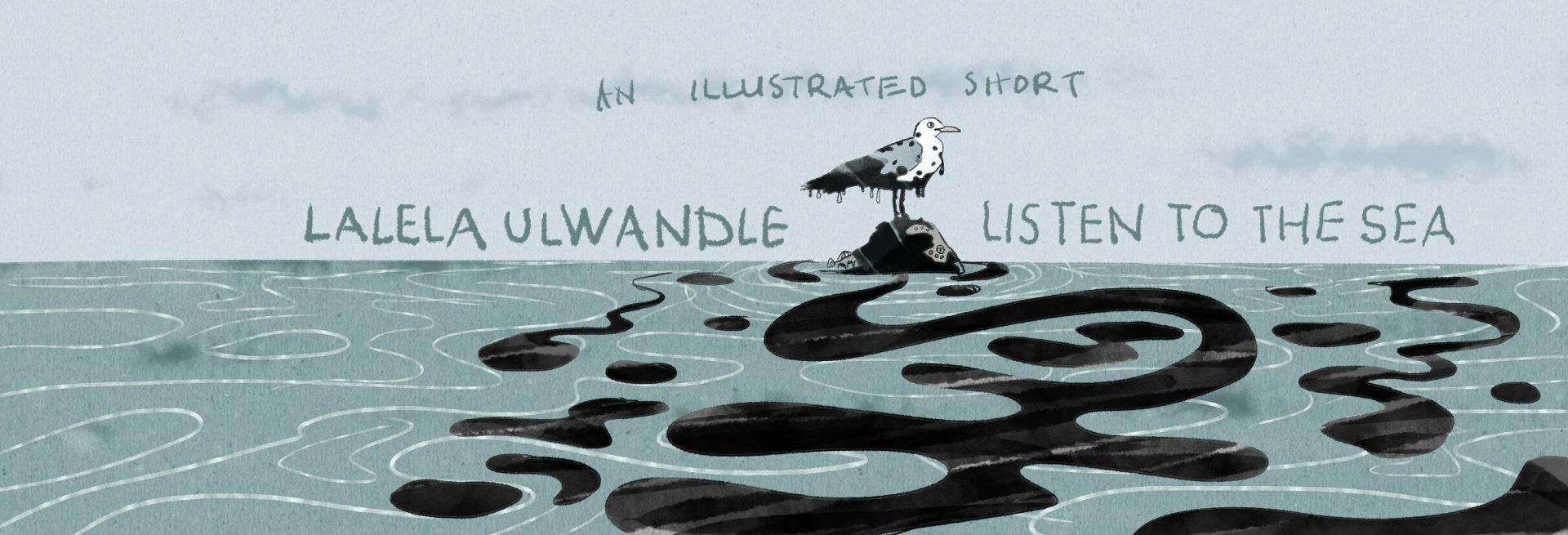
Empatheatre will be releasing its first new short film of at a public tribunal that will be lead by The Green Connection as part of their “Who Stole Our Oceans?” campaign. This short film is a new iteration of our recent theatre play and radio play “Lalela uLwandle: Listen to the Sea”. Empatheatre was honoured to collaborate with The Green Connection, drawing on our recent research through the One Ocean Hub, on marine governance, and the inclusions and exclusions that sit within the current system.
